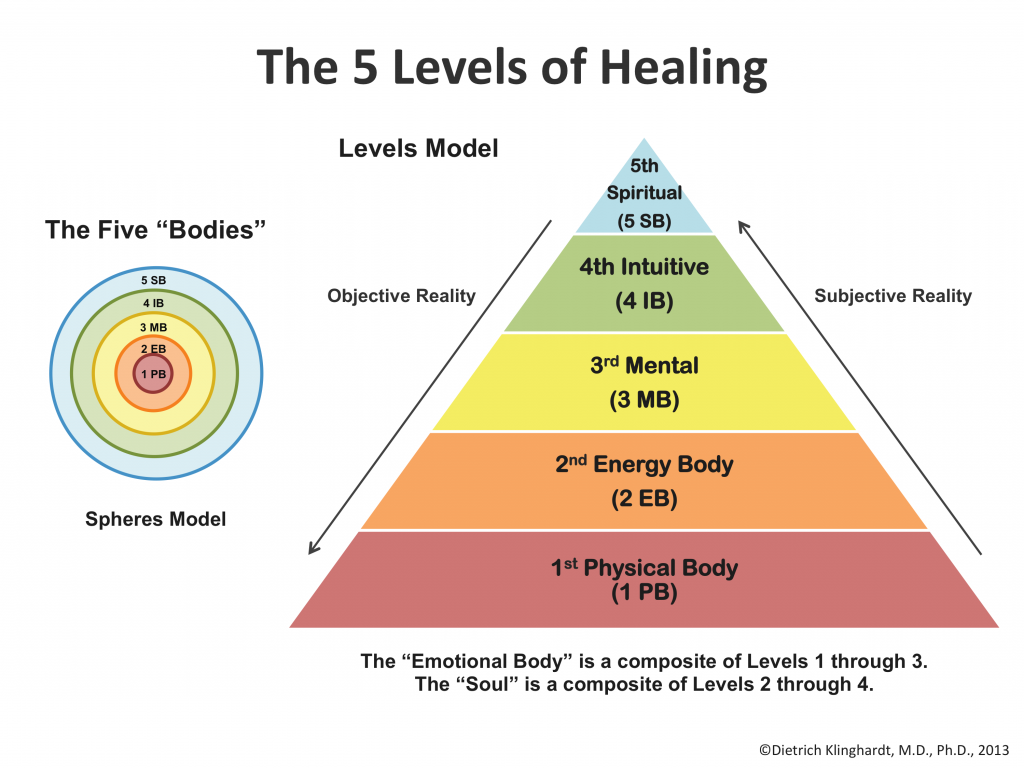The Importance of ‘Deep Healing’ to achieve Lasting Wellness

The idea of ‘healing’ in chronic illness is a controversial one. Can we really ‘heal’ diabetes, heart disease or dare I say cancer?
‘Healing’ becomes even more controversial in conditions such as chronic fatigue syndrome. In this article, I’m going to explore the idea of ‘deep healing’ and why it is essential to help you find your path to health:
When I worked in the NHS, I was looking after a female patient who had been diagnosed with metastatic breast cancer and required the removal of her kidney, bladder, part of her liver and large bowel as well as a complete hysterectomy.
She subsequently depended on two stoma bags, a urinary catheter, and as she was very overweight, was essentially bedbound.
My time with her was ephiphanic because for the first time, it made me question the significance of my role in modern healthcare:
It made me question the meaning of our work.
Do we really just spend billions of pounds on drugs and surgeries to mask symptoms and manage disease?
Does the real ‘magic’ of ‘medicine’ lie in what happens outside the hospital and GP surgery through the cultivation of nutrient dense diets and optimal happy living?
Each of these questions deserve their own articles, so I’m just going to say: Yes, in the current state of medicine (in the UK) at least, we spend just 5% of the NHS budget on prevention. But we spend between 40-50% managing lifestyle related diseases (cancers, heart disease, diabetes, stroke and overweight).
And yes, I believe the real ‘magic’ lies in inspiring and empowering people to optimize their health and live happy balanced lives.

Please note: For the purpose of this article, nutritionist refer to nutritional therapists and nutritionists. I‘ve written a small piece explaining the differences between dieticians, nutritionists and nutritional therapists here.
‘Conventional’ Nutrition v.s. Deep Healing

There is no doubt, that great nutrition and functional medicine can help people make big improvements and even transform their lives, but I’ve always questioned whether it’s enough to find really ‘optimise health’ especially with chronic complex illness and help people fulfil their potential.
I guess, what I’m trying to say is, very often nutrition and functional medicine, can often support symptoms but fail to achieve ‘deep healing’.
So what is deep healing?

I define deep healing as ‘The optimisation of our physical and cognitive state, using physical and psycho-spiritual practices and techniques’.
Dr Lawrence Wilson describes it as ‘The unfolding of the genetic potential of a human being’.
Even more simply: Deep healing is what will allow us to ‘reach our physical, cognitive, emotional and spiritual potential’.
In practice, Dr Mosaraf Ali, author of the neck connection succinctly lists the attributes of optimal health:
- Sufficient amounts of energy.
- A feeling of being unrestricted.
- Proper elimination.
- Proper ingestion and digestion.
- Sound sleep.
- The Ability to carry out duties without feeling strain or stress.
- A clear focused mind and sharp short term memory.
- A body that heals easily and can adapt to changes in atmosphere and weather.
- Strong Immune response
Heal Like An Onion
In my experience, in order to achieve ‘deep healing’ (or even just wanting to achieve optimal health) the healing process is akin to peeling an onion. There are often multiple layers that over time unfold, providing us the opportunity to address them.

This model beautifully illustrates what Dr Dietrich Klinghardt believes are the multiple levels of our existence.
In many cases of complex illness, some believe all or most of these layers need to be addressed in order to reach an ‘optimal state’ of health.
What does this look like in practice?
For example at the physical level, a person with CFS may require biochemical support for an infection, followed by antioxidant support followed by gut support. As the body becomes stronger, they become ready for the next ‘levels’ often psycho-spiritual.
As you may expect, each level requires different types of therapies and interventions ranging from: acupuncture, past life regression, prayer, psychotherapy, chanting, colour and sound therapies, hypnotherapy, homeopathy, Yoga, Qigong and body work such as reflexology and massage.
As I’ve said in a previous article: ‘Health is a Team Sport’.

Serious Discipline
However, deep healing involves serious discipline and the willingness to ‘dive deep’ into your darkest deepest self.
There are many interventions including psycheK, family constellation, breathwork and various others that can accelerate the process, but it depends on the person.
For those, able to work and have some semblance of a normal life, you almost have to put your ‘life’ on hold and simplify it and treat the healing journey like a job.
For most people, it’s extremely difficult. Clients have families, mortgages, and often prioritise the distractions of society: the material and superficial above their long-term well-being. Prioritising short-term reward for long-term gain.
The four S’s as I call them: Speed, Sex, Sugar and Society:
Speed:
Represents the ‘hustle and bustle’ of a city life. The fast pace which at a subtle level, acts as a ‘crutch’ to boost our energy by producing stress hormones to get us through life. Have you ever gone on holiday and developed a cold? Once you’ve ‘come down’ do you struggle for energy?
Sex:

Represents the ‘allure’ of the material and objectification that provides status and cheap gratification. The desire for these things often do not serve our highest and greatest good and well-being.
Sugar:
Represents the stimulation of foods: sweet foods, glutamate rich foods, foods that act to stimulate energy, to compensate for an inherent lack. These foods often ‘boost us’ for a finite period.
Society:
Represents the comparisons, judgements and expectations of others that become our own. The need to feel important, valued and revered.
Many of us feel like we need to be important, and ultimately ‘get our way’. But when we drop the four S’s and cultivate awareness, we realise we get our way all the time, because we gain control of ourselves. And that’s all we need.
Often, the people who exert power or authority over others, are not really in control of themselves and use others to compensate for the gaping whole within them.
I wrote an article about the importance of focussing on yourself when struggling with chronic illness (I hope it helps).
Losing Sight of What’s Normal
I believe many of us are losing sight of the difference between what’s normal and what’s common.
‘I’m tired’ or ‘I’m exhausted’ have become increasingly common phrases in our vernacular.
When was the last time you said ‘I feel on top of the world’ and ‘I feel like I can do anything’?
Children, perhaps exemplify what strong abundant energy should look like. They also take regular naps. They exemplify resolve and resilience that we all once had.
So coming back to why ‘conventional’ functional medicine may not be the answer to achieve deep healing…
To be honest with you….the functional medicine model will benefit most people most of the time.
If you feel like you are at your best, then that is wonderful. But if you feel like you are not yet at your best, or just don’t feel like your ‘old self’, then you may need to consider ‘deep healing’.
As practitioners we are only as good as what we can test. I do believe intuition and experience can transcend our limitations to a degree.
But most functional medicine practitioners are generally unable to identify and address the other levels of healing. For that, you need to find your health team.
Functional medicine can also invite too many tests, too many supplements, perhaps too much of what we don’t need to find the root cause.
The last thing a master learns is simplicity:
If there has been one lesson that I could share along my journey, it would be that ‘the last thing a master learns is simplicity’.
This mantra is best exemplified by arguably three of the most innovative thinkers in the ‘hollistic’ health space: Dr Dietrich Klinghardt, Dr Lawrence Wilson and the late Dr Nick Gonzalez (continued by Dr Linda Isaacs).
If you are not familiar: Dietrich Klinghardt is a medical doctor from Germany who practices integrative medicine.
Dr Lawrence Wilson a trained medical doctor, worked under Dr Paul Eck and developed the Nutritional Balancing Programme.
Dr Nick Gonzalez, was a medical doctor who developed a holistic cancer treatment programme.
Simplicity is perfection
Their knowledge and grasp of the science is tremendous, but their treatment approaches are elegantly restrained and simple (especially with Dr Gonzalez and Dr Wilson).
(On a side note: Interestingly, Dr Wilson and Dr Gonzalez both ascribe to the theory that most disease arises out of imbalances in the autonomic nervous system. Dr Wilson, also believes that heavy metal toxicity and the 70 plus thousand pollutants we are exposed to each day are the key drivers and main barriers to optimal health.)
In practice, their approaches to addressing issues are generally quick and relatively cheap. Even the diets they recommend follow the same foundations.
Although Dr Klinghardt uses his autonomic response testing ‘system’ to help find the root cause. Even though he often touts exotic propolis inhalation systems, Faraday cages, apheresis and all manner of exotic blood markers, when you see him, the recommendations and remedies are often quite simple.
Tips to Achieve Deep Healing
In the coming weeks I will be diving deep into the specifics, exploring the evidence base and sharing my tips and tricks.
In the meantime…..
My three biggest tips to achieving deep healing are Find your health team, think long-term and be patient (patients are called patients for a reason 😉 )
Try to see your experience with chronic illness as a journey filled with lessons and knowledge.
I don’t always believe everything happens for a reason, but suppose it did? What would your lessons be?
I believe this experience has equipped me with knowledge that most of my classmates, friends and family may never learn. When they’re slowing down, I’m just getting started!
Deep healing takes time, anywhere from months to years so try to surrender, accept and let go of any resistance and angst towards your condition.
I try to remind clients that healing is a process, which requires acceptance, surrender, patience, and the belief that one day you will get there.
Wishing you well on your path to health ??
Inder



0 Comments